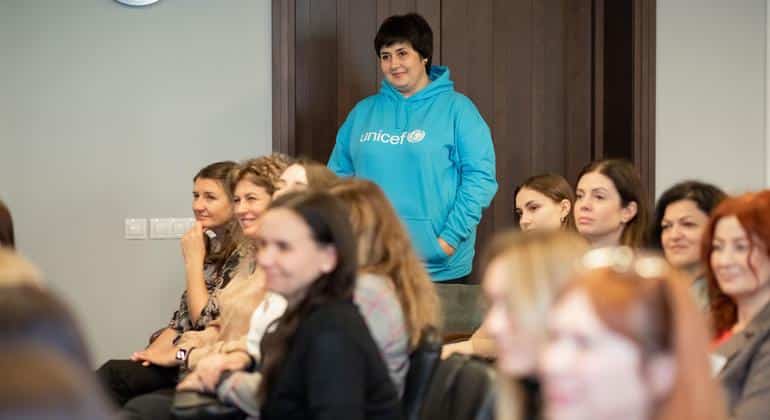On February 24, 2022, a startling sound of explosions woke up millions of Ukrainians, marking the beginning of a devastating conflict that still persists three years later. Despite the constant attacks and the deep scars it has left on the civilian population, Ukraine remains standing, bravely facing a bleak outlook. International organizations like UNICEF and UN Women continue to work in the country, trying to alleviate the suffering of those who have been affected by the war.
Natalia Datchenko, a worker for the United Nations Children’s Fund, recalls that fateful day with sadness. From Kiev, she remembers how devastation shook her life and the lives of thousands of Ukrainians. Amid the confusion, her desire to help others intensified, a feeling shared by many people who, like her, were impacted by the war. Lyudmyla Kovalchuk, a member of UN Women and a resident near Kiev’s airport, recounts that the explosions were a constant reminder of imminent danger. “We would wake up at five in the morning,” she says, shaken.
Women have faced particular challenges during this conflict. Lyudmyla points out that many of them have become heads of households, raising their children alone in a context marked by insecurity. It is estimated that approximately 70,000 Ukrainian women are serving in the army, and they require specific support in this new reality. The work of organizations has highlighted the need to care for and protect these women, many of whom have been forced to leave their homes and communities.
In the face of this adversity, support initiatives have been crucial. UN Women has implemented “safe spaces for women,” allowing victims of the war to connect with each other and begin the healing process. A UN worker recounts how one of the beneficiaries, Elena, began to find meaning in life again after receiving the appropriate support in such centers.
The data on the human impact of the conflict is bleak. The UN Office for the Coordination of Humanitarian Affairs has confirmed more than 12,600 civilian deaths to date, including at least 2,400 children. Most of the population lives in constant fear, and many people suffer in critical conditions in occupied territories, where the lack of humanitarian aid is a painful reminder of the situation.
However, despite the darkness, there are glimpses of hope. “My children are my motivation to imagine a better future,” says Anastasia Kalashnyk, whose determination in the face of tragedy is an example of the Ukrainian spirit. Women, in particular, appreciate the ongoing support of international organizations that remain in the country, even in times of chaos.
Natalia Datchenko emphasizes the importance of unity and the collective desire to rebuild what has been lost. In this journey, culture plays a crucial role, with initiatives like concerts and exhibitions contributing to the community’s resilience. “I seek inspiration in the beauty that still exists in Ukraine,” comments Natalia, reflecting the fight to keep hope alive.
However, the psychological toll is a high price to pay. Lyudmyla reveals the difficulties of consoling colleagues who have lost loved ones and supporting those who are suffering. Despite the magnitude of the pain, many people have emerged with renewed strength, remembering that “what doesn’t kill us makes us stronger,” although they wish they hadn’t had to learn it this way. The struggle for life and reconstruction continues in Ukraine, where the longing for unity and strength prevails among its people.
Referrer: MiMub in Spanish











